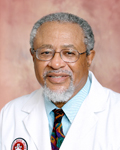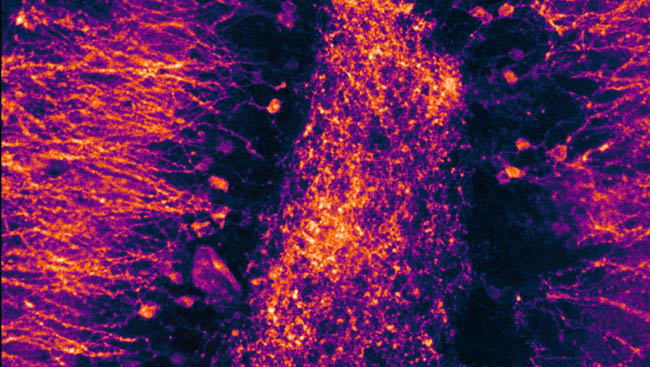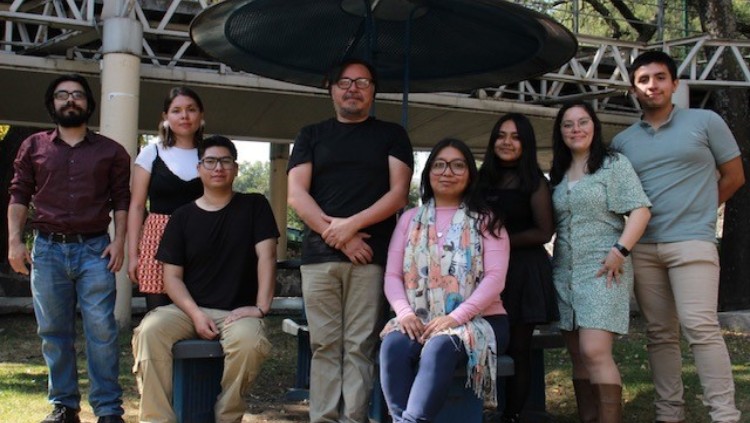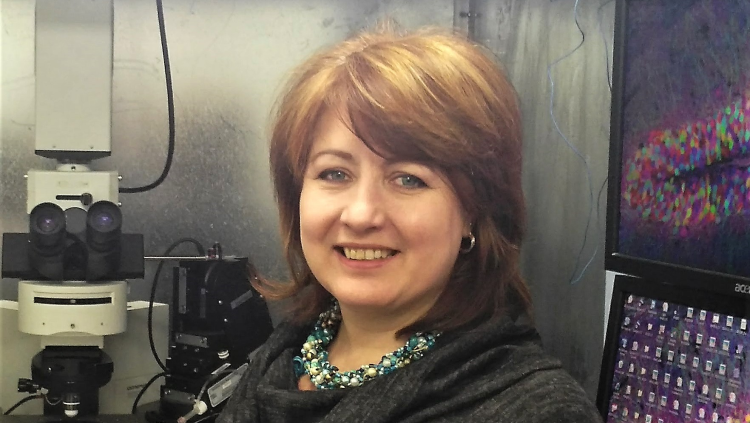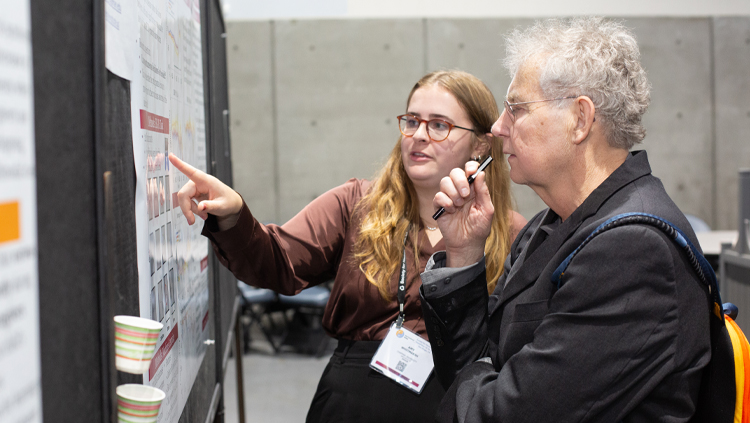Why Supporting Underrepresented Minorities Was a Driving Force for This Neuroscientist
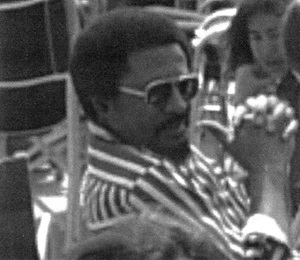 No two careers are identical. Yet, all neuroscientists will likely share certain commonalities: the first sparks of scientific curiosity, difficult challenges, resilience to press on, accomplishments large and small, hard-earned wisdom, and support from professional and personal communities.
No two careers are identical. Yet, all neuroscientists will likely share certain commonalities: the first sparks of scientific curiosity, difficult challenges, resilience to press on, accomplishments large and small, hard-earned wisdom, and support from professional and personal communities.
Here, James Townsel, professor emeritus at Meharry Medical College, focuses on how his time in the military influenced his decision to become a neuroscientist, how he has actively supported and created opportunities for underrepresented minorities, what he’s most proud of, and more.
“I believe in diversity because it enhances the overall effectiveness of the research,” says James Townsel, a professor emeritus at Meharry Medical College.
A dream of both Townsel and Joe Martinez was to create a perpetual fund to facilitate training diverse scientists. The Scholarships to Enhance and Empower Diversity (SEED) fund, part of the American Psychological Foundation (APF) Fund for Racial and Ethnic Diversity, helps achieve their goal of supporting the training and mentoring of the brightest trainees in neuroscience from diverse backgrounds.
Read this interview to learn how and why Townsel has devoted his career to making educational opportunities available to underrepresented minorities in the biomedical sciences, and how you can help do the same.
What inspired you to become a neuroscientist?
My trajectory to neuroscience was a bit odd. It wasn't something that I'd thought about when growing up in Pennsylvania. I lived in the inner city in Harrisburg and didn’t know any PhD scientists. In my community, the only people I knew who had science as a component of their career training were one physician and one dentist.
However, I knew I had a love for science, so I decided to go to school to become an MD. I started undergraduate school after a year-long delay because I didn't have much money and needed to borrow some. I entered in a pre-med curriculum as a biology major. I also got involved in advanced Reserve Officer Training Corps (ROTC) and made extra money.
When I graduated, I was the ranking student in the sciences, but I still couldn't afford to go to medical school.
I decided to begin my career as an officer in the military, with the ultimate goal of becoming a general.
So, I decided to begin my career as an officer in the military, with the ultimate goal of becoming a general. My first duty station was in Anchorage, AK. I was in the Medical Service Corps, which ran an infirmary and a pharmacy.
As a second lieutenant, I was assigned the role of training officer for the company. I had to arrange the training exercises and lectures, in both military matters and medical. The medical lectures were supposed to be given by physicians in the company, but they frequently deferred to me.
I discovered the topics fascinated me. I did extensive reading and decided this was my calling. I decided to retire from the military and pursue training for a PhD in physiology. I got into the PhD program in physiology at Purdue University. The lab I entered did some neuroscience research, which led me to doing a project in neuroscience.
After graduating from Purdue with a PhD, I was motivated to go back to my alma mater, Virginia State University (VSU). I was committed to providing educational opportunities I had enjoyed to minority students. I returned to VSU and remained there for four years, serving as the pre-professional advisor. I loved my job, but I realized it would not be possible for me to launch a research-focused career at this undergraduate institution.
I was fortunate enough to win a senior postdoctoral fellowship in the department of neurobiology at Harvard University. My experience in the neurobiology department at Harvard was career-shaping. I met some of the most prominent neuroscientists in the field.
At Harvard, I found my passion and committed to having a career in neuroscience. So that's what lead me into the field, and I am happy I decided to do that.
How did you navigate these transitions?
As an undergraduate student at VSU, I met a professor who became a lifelong mentor to me.
This person was Richard Dunn, a professor of botany at VSU, and he became a very important part of my life. He was there for me nearly every step of the way. When I ran into roadblocks, he helped me navigate them. My success was important to him, and he believed in me.
What are some specific ways he supported you as your mentor?
He listened to what I wanted to do and then said, "Well, what do we need to do and let's do it."
Before I got out of the service, I was applying to graduate schools but hadn’t received a positive response. I couldn't understand this because I graduated with high honors in science. Upon leaving the Army, I attended a homecoming at VSU and happened upon Dr. Dunn. We talked, and he suggested we remain in touch. Later in the year, he called and offered me a job as an instructor at VSU. While working there, I discovered why I hadn’t received a positive response to my application to several graduate schools. The person from whom I had requested letters of reference was still at VSU, but he had Alzheimer’s.
Dr. Dunn discovered my interest in graduate studies at Purdue University. He helped me get in to Purdue, even after the enrollment period had closed.
By then, I had a wife and two kids. Dr. Dunn helped me get a decent fellowship and additional funds from the state of Virginia for minority students who went to an institution outside of the state instead of the University of Virginia.
Has your own positive mentoring experience influenced how you approached mentoring?
Definitely. As I advanced in my career, I tried to develop my mentoring relationships after what I experienced with Dr. Dunn. Over the course of my career, I've received numerous national, prestigious awards for my mentoring. I appreciate the recognition, but nothing is more important to me or gives me greater satisfaction than watching the career success of the young people I've had the opportunity to mentor.
What would you say your proudest professional moment was in your career?
I’ve had several proud moments.
To my knowledge, we were the only HBCU to win such a grant.I consider developing a nationally recognized PhD neuroscience and physiology program at Meharry Medical College in Nashville, TN, to be a major part of my legacy. Our program won a highly competitive training grant in open competition. To my knowledge, we were the only historically black college (HBCU) to win such a grant.
Shortly after arriving there in 1973, I acquired an R01 grant in my first submission. I also secured a similar NSF grant.
With those funds, I quickly built a laboratory, bringing aboard a visiting professor, a postdoc, two technicians, and the most productive graduate student I would ever have in my lab.
I am also proud to have been honored by the Marine Biological Laboratory (MBL) in Woods Hole, MA. I spent over 30 years running a summer program there for neuroscientists from all over the world. For the past 20 years, the course, Summer Program in Neuroscience, Ethics, and Survival (SPINES), has focused on aiding minority students achieve successful careers. In recognition of our efforts, in 2007 the MBL established an endowed lecture in my name, which I share with Joe Martinez, Jr, the other course director.
What was a major professional challenge you encountered?
One of the big challenges I faced was my commitment to working in an HBCU community. I was eager to join an HBCU, like I had attended, to provide minority youth the opportunity to have a meaningful scientific career.
I discovered, though, that the absence of a strong commitment to research that prevails at most HBCUs compromises the research application of faculty. I cannot forget the comment on the summary statement of my first R01 application: “Even though this is an excellent application from a well-trained applicant, chances of his success in this environment are slim to nil.”
In my early days at Meharry, I encountered a number of obstacles stemming from the absence of a strong research culture. After getting research funding, I noticed I was the only neuroscientist in the department of physiology, so I was responsible for teaching neuroscience to medical and dental students. Such a heavy teaching load made it difficult to carry out productive research.
However, when I returned to Meharry as chairman of physiology, I benefitted from what I had learned through that experience.
I used that knowledge to my advantage to build a strong neuroscience training program. On my first day, I was given two positions to fill with my own choices. I hired two active research neuroscientists. I also was invited to participate in writing an NIH grant called Research Centers at Minority Institutions. We were successful, and I was able to hire five additional neuroscientists.
This allowed us to eventually complete an ultimately competitive neuroscience training grant. We were the first minority-serving institution to ever receive such an award, and I was very proud of that. Our neuroscience program turned out some very productive young scholars who went on to achieve so much.
The other tough challenge I faced was getting my manuscripts accepted for publication. I had to have frequent contact with editors. Normally, the review process involves one review. I went through two, and in one case three, reviews before the paper was accepted. We persisted, and did not let that stop us from working to get those papers published.
At various points in your career, you were the only African-American at your work environments. How has your experience as an underrepresented minority in science been throughout your career?
It's been interesting, but it was a challenge I wanted, so it was okay. I was the only African-American postdoc in my department at Harvard. I stood out when I asked questions at talks. Yet, I think the experience there was massively helpful in leading me to achieve career success. I look back on those past days as good days. I'm proud I had a chance to do some of the things I did.
You have helped raise the visibility of underrepresented minority neuroscientists. How has that work impacted you and the trajectory of your career?
It's been a driving force. There were two goals I set for myself when I got my degree.
One was to make a significant contribution to the neuroscience field. I think I've done that. I made a significant contribution to research on protein trafficking in the nervous system.
The other objective that I had for myself was to make educational opportunities available to underrepresented minority students. I have devoted my career to this objective.
I was the recipient of several NIMH training grants in neuroscience. As I mentioned, I've worked at MBL to help underrepresented minorities get traction in the field.
And, even though I've been retired since 2010, I'm still working on a project for the American Psychological Association to develop an endowment fund to address the lack of cultural balance in the biomedical workforce.
What advice would you offer underrepresented minorities on how they can succeed in science?
First, it doesn't matter whether you are in the minority or in the majority, you have to find an effective mentor — someone who cares about your success. There are many books and papers written on mentoring, which is good. But, I don't know that you can be taught how to care about someone.
It’s also important to recognize in the scientific field, the primary currency is published work and grants acquired. If you want success, you have to publish in respectable journals, and you have to publish some papers as either the first or last author to show you were the driving force. Moreover, an active publication record is essential to acquiring grants.
What are your hopes for the future of the field?
I hope we see much better diversity in neuroscience. I believe in diversity because it enhances the overall effectiveness of the research. Also, the human resource pool in this country is changing. In not too many years — maybe 20 or 30 years — African-Americans and Hispanic Americans will represent 50 percent of the population. We can’t afford to allow that huge percentage of the population to go unnoticed and underrepresented in our biomedical workforce, especially in neuroscience.
I hope we do a better job. We have to do better. I'd like to see that happen as neuroscience grows.
Speaker
